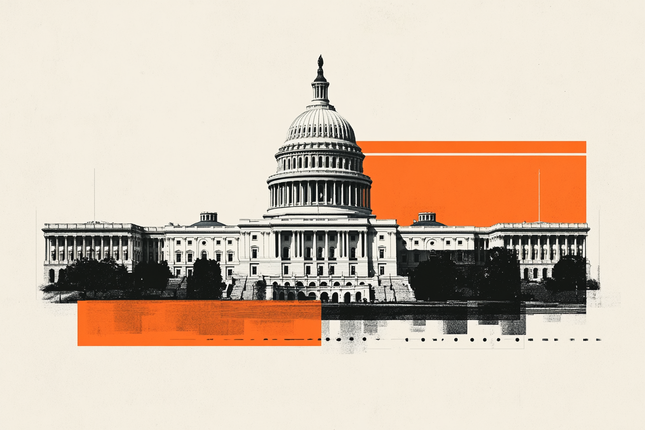For investments, the technology sector offers many potential unicorn projects. However, it is crucial to vet any project, as I know from my own experience that not everything is what it seems. Investing in startups can prove worthwhile, but only under certain conditions.
Navigating the startup landscape
As new companies and projects sprout up at every turn, there is an overwhelming amount of potentially good startups on the market at any time. The majority of them can be found in the finance and technology sectors. Not surprising, as we can all acknowledge that developers can improve upon both industries in many ways. Moreover, new technologies can pave the way for better financial solutions, whereas open finance can benefit technology startups.
Bringing the two segments together is a massive undertaking. Although I am a fan of neobanks and mobile-only financial services, it is only a smidgeon of what could be achieved in the future. For investment funds, that makes navigating the landscape all the more difficult. Without any industry standard or "good practices" to go by, it can be difficult to make investment decisions.
At their core, investment funds need to perform rigorous checks of any project they want to invest in. Startups need to make a compelling case to attract investment including the return on investment, analyzing hard data, the business plan, and the overarching narrative. Additionally, they need to have a unique idea that is business-ready and a transparent investment structure. As a startup, it requires a lot of upfront work for something that may or may not happen, but that is the landscape these days.
In the end, investment funds want to make money by investing in startups. To do so, they must put the proverbial thumbscrews on companies who think they have to make big things happen. If startups cannot answer the questions above properly, I wouldn't invest, no matter how much I like the project. A similar approach may be necessary for the cryptocurrency market, as there is still too much "grey area" to attract investment funds.
Crypto startups need to answer tougher questions
As a fan and member of the cryptocurrency industry, seeing so many projects complete seed and private funding with ease surprises me. Not because the projects aren't worthwhile. But because they seemingly can avoid answering the tough questions. Compared to regular startups, crypto projects seemingly have very few tough questions to answer. What may be a standard checklist for startups outside of crypto is not the norm in this exciting industry just yet.
In the current landscape, any "checks" between market participants are virtually non-existent. There appears to be a lot of "blind trust" in an industry where transparency should be the norm, yet it isn't always the case where startups and business processes are considered. We can only hope to see this change in the future. There is no point in investing in startups that do not check all of the right boxes.
The same train of thought applies to exchanges and exchange protocols or DEXes. Reliability checks are often an afterthought, as everyone wants to list coins that can provide ample trading volume. Everything else appears to be less important, even though I think the focus on security and auditability needs to improve.
It is, in my opinion, a matter of time until the crypto industry embraces the thorough standards startups in any other segment have to live up to. Without such strong checks, I fear the industry will never lose the image of "too many scams" and "a lack of reliable projects".
The importance of audits
Any startup in the crypto industry that wants to make an impact can opt for a code audit. There are multiple firms capable of performing this task. However, I find the work by HashEx rather impressive, as they have produced numerous analysis reports on projects either in development or live on a blockchain right now. Moreover, this company's portfolio keeps growing regularly, confirming many startups trust the service they provide.
HashEx has completed over 300 audits of projects such as SafeMoon, CoinBurp, xSigma, and BondAppetit. Once having fixed the vulnerabilities detected or in case no such vulnerabilities are found, these projects can offer their code to a broader audience. For investors, it makes no sense to entrust money to anyone or any project that has not gone through a peer review. Despite smart contracts being open source, very few people actively look at their code until something goes wrong. It is time to change that narrative for the better.
Solutions like code audits are an important first step in the right direction. However, Crypto startups need to acknowledge there is a need for an extra layer of legitimacy. I would love to see all blockchain-based contracts undergo an audit, with at least 80% of them being audited more than once. Establishing a base layer of trust is essential to bring in a mainstream audience, including investment funds and other entities.
Closing thoughts
Even though I’m still incredibly bullish on cryptocurrencies, DApps, and decentralized finance, something needs to change in this industry. The lackluster attitude to security and accountability continues to baffle me, even though there have been more than enough security incidents over the years to warrant a more cautious approach.
One can only hope to see the industry embrace audits because they feel it is the right thing to do. Auditing providers like HashEx, CertiK, and others play a crucial role in this industry. Innovation and security need to go hand-in-hand, as they are not mutually exclusive aspects. Any crypto startup catering to investment funds needs to do what is right, no matter the cost.
The views and opinions expressed in this article are based on the authors' personal opinion and experience, and the information contained herein is not intended to be a source of advice or credit analysis with respect to the material presented, and the information and/or documents contained in this article do not constitute investment advice.
Editors’ Picks

EUR/USD: US Dollar comeback in the makes? Premium
The US Dollar (USD) stands victorious at the end of another week, with the EUR/USD pair trading near a four-week low of 1.1742, while the USD retains its strength despite some discouraging American data released at the end of the week.

Gold: Escalating geopolitical tensions help limit losses Premium
Gold (XAU/USD) struggled to make a decisive move in either direction this week as it quickly recovered above $5,000 after posting losses on Monday and Tuesday.

GBP/USD: Pound Sterling braces for more pain, as 200-day SMA tested Premium
The Pound Sterling (GBP) crashed to its lowest level in a month against the US Dollar (USD), as critical support levels were breached in a data-packed week.

Bitcoin: No recovery in sight
Bitcoin (BTC) price continues to trade within a range-bound zone, hovering around $67,000 at the time of writing on Friday, and falling slightly so far this week, with no signs of recovery.

US Dollar: Tariffed. Now What? Premium
The US Dollar (USD) reversed its previous week’s decline, managing to stage a meaningful rebound and retesting the area just above the 98.00 barrier when tracked by the US Dollar Index (DXY).
RECOMMENDED LESSONS
Making money in forex is easy if you know how the bankers trade!
I’m often mystified in my educational forex articles why so many traders struggle to make consistent money out of forex trading. The answer has more to do with what they don’t know than what they do know. After working in investment banks for 20 years many of which were as a Chief trader its second knowledge how to extract cash out of the market.
5 Forex News Events You Need To Know
In the fast moving world of currency markets where huge moves can seemingly come from nowhere, it is extremely important for new traders to learn about the various economic indicators and forex news events and releases that shape the markets. Indeed, quickly getting a handle on which data to look out for, what it means, and how to trade it can see new traders quickly become far more profitable and sets up the road to long term success.
Top 10 Chart Patterns Every Trader Should Know
Chart patterns are one of the most effective trading tools for a trader. They are pure price-action, and form on the basis of underlying buying and selling pressure. Chart patterns have a proven track-record, and traders use them to identify continuation or reversal signals, to open positions and identify price targets.
7 Ways to Avoid Forex Scams
The forex industry is recently seeing more and more scams. Here are 7 ways to avoid losing your money in such scams: Forex scams are becoming frequent. Michael Greenberg reports on luxurious expenses, including a submarine bought from the money taken from forex traders. Here’s another report of a forex fraud. So, how can we avoid falling in such forex scams?
What Are the 10 Fatal Mistakes Traders Make
Trading is exciting. Trading is hard. Trading is extremely hard. Some say that it takes more than 10,000 hours to master. Others believe that trading is the way to quick riches. They might be both wrong. What is important to know that no matter how experienced you are, mistakes will be part of the trading process.
The challenge: Timing the market and trader psychology
Successful trading often comes down to timing – entering and exiting trades at the right moments. Yet timing the market is notoriously difficult, largely because human psychology can derail even the best plans. Two powerful emotions in particular – fear and greed – tend to drive trading decisions off course.


